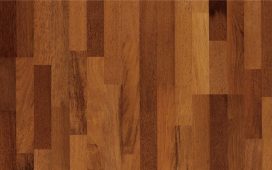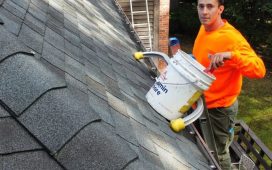Key Takeaways
- Proper insulation maintains consistent indoor temperatures, enhancing comfort.
- It significantly reduces energy consumption, leading to lower utility bills.
- Insulation helps prevent moisture issues, improving indoor air quality.
- Soundproofing benefits are an added advantage of quality insulation.
- Choosing the right insulation material and ensuring proper installation are crucial for optimal performance.
Table of Contents
- Understanding Insulation and Its Role
- Energy Efficiency Benefits
- Enhancing Indoor Comfort
- Moisture Control and Indoor Air Quality
- Soundproofing Advantages
- Choosing the Right Insulation Material
- Importance of Professional Installation
- Conclusion
Creating a comfortable home environment goes beyond aesthetics and décor. One of the most vital yet often overlooked aspects of modern living is ensuring your home is equipped with quality insulation. Not only does this barrier system help regulate indoor temperatures year-round, but it also supports lower utility bills and extends the lifespan of your home’s systems by reducing their workload.
Insulation serves as an exceptionally efficient solution, shielding your home from temperature extremes. Properly insulated homes remain warm during chilly winters and cool in the sweltering summer months, significantly reducing overall energy consumption. For those seeking dependable solutions in the Orlando area, choosing the proper insulation provides lasting comfort and efficiency. Insulation not only improves comfort and reduces energy costs but also controls moisture, reduces noise, and stabilizes indoor temperatures. With growing concerns about energy efficiency and sustainability, investing in proper insulation benefits both your home’s comfort and its long-term financial and environmental performance.
Understanding Insulation and Its Role
Insulation not only improves comfort and reduces energy costs but also controls moisture, reduces noise, and stabilizes indoor temperatures. Consulting with garage door experts can also ensure that your garage, often a key entry point for air leaks, is properly sealed and insulated, enhancing the overall efficiency of your home. With growing concerns about energy efficiency and sustainability, investing in proper insulation benefits both your home’s comfort and its long-term financial and environmental performance.
Energy Efficiency Benefits
One of the most tangible benefits of proper home insulation is reduced energy use. According to the U.S. Department of Energy, effective insulation can save homeowners up to 50% on energy bills. Reducing reliance on heating and cooling systems not only lowers expenses but also reduces wear and tear, contributing to longer system life and fewer repairs. Energy efficiency also supports broader environmental goals, helping reduce greenhouse gas emissions and the environmental impact of excessive energy use.
Enhancing Indoor Comfort
Insulation’s impact on daily comfort is immediate and enduring. Properly insulated homes experience fewer cold spots and drafts in winter, and more even, comfortable cooling during summer. This leads to a uniform climate throughout the house, regardless of the weather outside or the time of year. Improved comfort affects not only your well-being but can also enhance productivity, sleep quality, and the overall livability of your space.
Moisture Control and Indoor Air Quality
Uncontrolled moisture is a significant threat to both home structure and health. Insulation not only blocks temperature extremes but also acts as a moisture barrier, helping to prevent condensation. Reducing damp areas where mold and mildew thrive promotes healthier indoor air. This is essential for homes in humid climates, where moisture problems are prevalent and can lead to wood rot, mold growth, or even compromised building stability.
Soundproofing Advantages
Quality insulation doesn’t just regulate temperature—it can also transform the acoustic environment of your home. Materials like cellulose, foam, and fiberglass have natural sound-dampening properties, limiting the transfer of noise between rooms and from outdoors. Whether it’s street noise, neighbors, or sounds between floors, insulation is a discreet but effective way to create a quieter, more tranquil home. For many, this benefit alone is worth the investment, especially in high-density neighborhoods or near busy roads.
Choosing the Right Insulation Material
Not all insulation is created equal. The choice of material—fiberglass batts, spray foam, rigid foam boards, or loose-fill cellulose—depends on factors such as climate, budget, and the specific needs of each area of your home. A critical metric for assessing these options is the R-value, which measures a material’s thermal resistance. Higher R-values provide better thermal performance, but installation quality also plays a key role. Making informed decisions ensures you get the best return on your investment, both in comfort and efficiency. For comprehensive guidance on insulation, Consumer Reports’ insulation guide offers valid comparisons and tips.
Importance of Professional Installation
Proper installation is essential to maximize the benefits of any insulation product. Gaps, compression, or misapplication can dramatically reduce its effectiveness. Working with experienced professionals ensures every space and crevice is sealed, delivering intended energy-saving, soundproofing, and moisture-control results. A reputable installer will assess your home’s specific needs and use the right materials and techniques for long-term performance.
Conclusion
Insulation is an investment in your home’s future comfort, health, and efficiency. When properly chosen and professionally installed, modern insulation techniques offer a substantial return in the form of lower bills, elevated indoor comfort, and sound environmental stewardship. Addressing insulation needs holistically ensures your living space remains a sanctuary, no matter the season or external climate changes.







